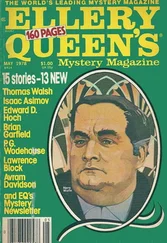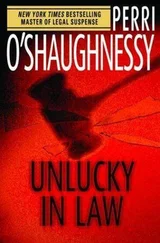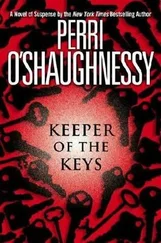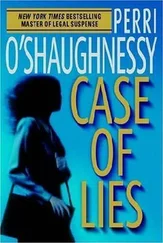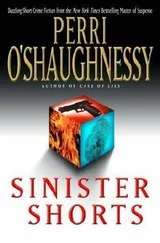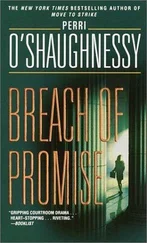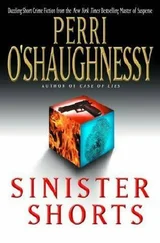“I’ll be there.”
“You better take this one too,” Sandy said, her finger on the hold button on the phone.
Nina picked up the extension she had rigged on her table. “Hello?”
“Hi. It’s me.”
Across an ocean, flying over a continent, only slightly distorted by the thousands of miles between Stockholm, Sweden, and Carmel, California, the voice was almost instantly recognizable. “Hello, Kurt.”
“Nina.”
“It’s good to hear your voice.” Was it? She couldn’t tell how she felt. Kurt, so much part of her past, father of her only child, lived too far from her to do more than dance along the edges of her consciousness now and then.
“Same,” he said. “Listen, Nina. I’m sorry to spring this on you, but Bob… he’s impulsive. Like his mother.”
“Like his father,” she said, kidding, as Kurt had been, but wondering what he meant. “He’s okay?”
“Fine. I mean, he was fine last night when I saw him last.”
“What’s going on?”
“I told him to call you, but he said he just gets a recording. He wouldn’t leave a message. He’s on a kick.”
“Kurt, I’m trying to follow here.”
“Well, there’s news,” he said, an understatement, as it turned out.
When she hung up, Nina turned to Sandy and said, “Bob’s getting into the Monterey airport at three. I’m going to pick him up.”
“You want me to go?” She didn’t seem surprised.
“No. You have to get our motions over to the court by five.”
“How do you sign them, if you’re not here?”
Nina grabbed several sheets of pleading paper and signed them about halfway down. “You’re so good I’m going to assume you can transcribe the motions perfectly, proof them, and make them end right above the signatures on the papers.” She was signing proof-of-service forms as she spoke. “If Paul calls… don’t tell him about Bob, Sandy.”
“You sure?”
“I’m… kind of behind with this,” Nina said.
“Ooookay.”
Sandy did not say, this is what you get for not dealing with what is really happening in your life, and, for that, Nina was grateful. Nina lingered at the door for a while, issuing instructions that Sandy took in good spirit, then finally went out to the street to locate the Bronco, which had a ticket, as usual. She stuffed it into the glove box with all the others. Another thing she could not tell Paul was that she couldn’t stay in Carmel forever. The boot would get her for sure.
She drove through light afternoon traffic to Highway 68. She took the airport exit. A million questions rose in her throat. She tamped them down.
The sight of Bob waiting on the curb, as battered as his duffels, looking insecure and uncertain of his welcome, tore through all questions and doubts. Jumping from the Bronco, she grabbed him and hugged him tight. “Oh, honey!” she said.
He said nothing, just clung to her.
With no other option, she took him directly to Paul’s condo. In the car, they didn’t talk much. Bob was exhausted and incoherent. At his age, fourteen, incoherence was the norm. She had forgotten how difficult it was to pierce the haze of adolescence, but the trip reminded her immediately. Mom did not ask probing questions. Mom awaited moments of revelation. Since a fourteen-year-old boy did not understand himself, he had few such moments. Plus, he did not wish to subject himself to Mom’s judgment.
She reached over and ran her hand through his spiky hair instead.
At the condo, she helped him unload his duffel and the case with his bass in it. He couldn’t sleep on the couch in the living room; the television had its corner in that room, and the area opened up to the dining and kitchen areas. They would all go crazy with a teenager installed on the couch there.
Bob would have to set up shop in Paul’s high-tech study.
While she pushed books around on shelves to make room for a few of Bob’s things, and pulled out the sofa bed, he showered.
She found extra bedding in the hall closet, and put it on the sofa in the study along with a few throws Paul had accumulated over the years, one saying 49ers, another saying R U Experienced?
Bob came in, rubbing his hair with a towel, trailed by Hitchcock. She was sitting cross-legged on the floor near the couch. “I’m glad you’re here.”
“Me too,” he said. He tossed the wet towel onto a desk full of papers. Nina got up to remove it. Paul would not want his papers runny and moist. Seeing the sofa with its fresh sheets, Bob crawled inside, pulling the sheet up to his neck. “I’m so tired,” he said.
“It’s a long trip from Sweden to the West Coast,” Nina said. “How long have you been traveling?”
“Forever. Honest, Mom, I lost track. I don’t even know what day it is.”
“Bob, we need to talk.”
“Sure, Mom. Go ahead.” His voice already sounded muffled.
“Because…” Because Paul doesn’t know anything about this, she thought in despair. Because I’m afraid what his reaction will be, finding this kid ensconced in his private space without warning. Because he always said he didn’t want kids at all.
“Because,” she started again, more firmly, “we have to find a better situation.”
“It isn’t the most comfortable bed in the world,” Bob said, “but it’s fine for now.”
“I didn’t know you were coming! I would have gotten a room ready.”
“I tried to call! You were never around!”
“What about my cell?”
“I always got your message center. I hate that. It’s too complicated for a message.”
“So what’s going on.”
“I wanted to come home.”
“So you did.” Home meaning… Mom?
“Right. They only charged me a hundred bucks to change my ticket, and I paid for it out of gifts I got from Uncle Matt, so that’s okay, right?”
“But, Bob…”
“It’s okay, Mom. I don’t care that this bed is hard. I could sleep out on the deck until the weekend, and never wake up.” His voice was drowsy. “There’s more. Tell you later.”
She couldn’t get another word out of him. His eyes rolled up and closed and that was that.
The duffel was full of dirty, stinking, in some cases damp, clothes. She took them into the laundry area off the hallway and started to sort, whites, darks, permanent press, unable to think about Paul coming home, what he would say. After she sorted his things, she decided to add the growing pile in the laundry basket in the main bathroom.
In the corner she saw the rolled-up pile of clothes Wish had left the night he appeared at their door.
“Ugh,” she said, pulling them out. They should have tossed these the day Wish got back. Holding the reeking ball at arm’s length, she marched to the kitchen, to the main trash can. Before she dumped the contents, she forced herself to pick through the pockets, changing her mind in the process. Let Wish decide what to do with his motley assortment.
Wish was a pack rat, like Bob. Bottle caps, crumpled paper, an old lollipop melted into its paper wrapping… he had an accumulation of goodies, some of which she couldn’t even recognize. Forcing herself to be diligent, she took it all, right down to the denim-colored lint, and stuffed it into a plastic bag. She set the contents on the kitchen counter to give to Wish later and, feeling productive, gathered up all the kitchen trash and carried a big load out to the Dumpster at the end of the buildings. She yawned. She was beat.
It was five o’clock, the adults’ witching hour, when the work stops and, if you’re lucky, the fun begins. Right on cue, she heard Paul’s Mustang muscling into the driveway.
He swept in, kicked his shoes off, and gathered her up into his cold arms. “Ah,” he said. “Alone at last.” His grin, so soon to be brutally erased, was one she knew well, and signified that he was feeling playful.
Читать дальше

